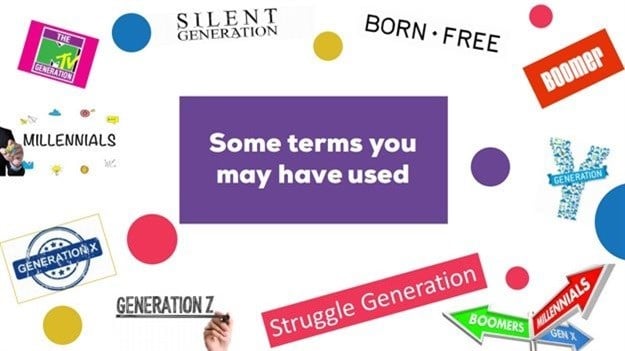From the confusing terminology of 'millennials', 'Gen Z', 'born frees', 'generation jobless' and more, to the numbers often being misquoted, the launch of the UCT Unilever Institute of Strategic Marketing's Youth Report 2018 explained the power of the youth market and the need to be wary of misrepresenting them when marketing to them.

Cover image of Youth Report (2018). UCT Unilever Institute of Strategic Marketing & Instant Grass International.
Presented at the Sports Science Institute in Newlands on the morning of Wednesday, 29 August 2018, speakers for the launch of this year’s UCT Unilever Institute of Strategic Marketing’s Youth Report included the institute’s own James Lappeman, who holds a PhD in consumer behaviour.
Lappeman was followed by Professor Haroon Bhorat, director of the UCT Development Policy Research Unit, senior fellow at the Brookings Institute, as well as presidential and ministerial advisor and consultant to the World Bank, UN and ratings agencies; Martin Neethling, director of groceries at Pioneer Foods; and Dali Tembo, MD of Instant Grass International.
Paul Egan, who heads up the UCT Unilever Institute of Strategic Marketing, began with the words that income generated from attending the UCT Unilever Institute of Marketing’s events goes toward their hosting future events, as they’re not for profit. Professor Simpson, who started the Institute 20 years ago, realised students were learning from overseas textbooks without local insights.
Fast-forward to today, and the Institute realises that while it’s surrounded by youth at the university, it’s easy to be detached from this market, hence their collaboration with Instant Grass International.
Explaining the context of the presentation, Egan asked, ‘Why youth?’ He said that in any market, the youth segment is important as they are the consumers of now and consumers of the future, with influence on the rest of society. As a result, we need to understand what it’s like to be a South African youth in 2018.
It’s often said that youth is wasted on the young, but this statement ignores the challenges of the transition to adulthood, with Bhorat – father of three teenagers, including twin girls – stating that transition is harder now than ever in 2018.
He also warned that many of the facts presented on the morning make for stark reading, but the hope is that those youth are resilient. If we help them thrive, the country will be in a better place.
Why we need to understand what it’s really like to be young in South Africa in 2018
This was not ‘just another presentation’, instead, the objective was to understand what it's really like to be a South African youth in 2018. Almost half of the country is under 24 years old, meaning they were born after democracy, with Stats SA’s mid-year population estimate for 2018 showing that 1.2 million children are born here every year.
As a result, the morning included a quantitative and qualitative deep dive into youth attitudes, behaviours and statistics.Lappeman explained that putting the report together involved synthesising thousands of focus group transcript pages and two large surveys as well as secondary data, while also interviewing experts and analysing work from top economists to provide a window into young South Africans’ lives.
He then spoke of another area of confusion: “the lingo”, and the fact that when talking about youth, there’s often a misunderstanding of terminology, ranging from ‘millennials’ to ‘born frees’.

Slide 20 of Youth Report (2018). UCT Unilever Institute of Strategic Marketing & Instant Grass International.
Age cohorts are useful, as they develop similar attitudes and beliefs, caused by shared experience in early human socialisation. This, in turn, influences the development of values, beliefs, personality and expectations, which often persist throughout adulthood.
Marketers can then use this as it provides a platform for segmentation strategy as we use age cohorts as a form of subculture.
So Lappeman said the common idea is that we can draw a circle around people living in a certain time and social context, but unfortunately, we often get it wrong when we fall in love with those names and use them without understanding.
For example, did you know that the oldest millennial is actually 39, and the youngest is 17? And the first ‘born free’ was born in 1980, not 1994.
That's quite a broad cohort, and probably not who you had in mind when you first thought 'millennial'. Lappeman then showed this ‘generic millennials ad’, made by Dissolve entirely from stock footage, to prove his point:
The response overall from the UCT Unilever Institute of Strategic Marketing’s primary research, with respondents aged 18 to 24, is that the term ‘millennial’ actually has a negative connotation. So if your brief says the brand needs to reach millennials, realise that it’s not so easy to draw that circle around them.
Also, note that terminology tends to be based on Western definitions that aren’t quite so relevant in the South African context.
Lappeman concluded to be careful with how you use terminology as you might be using the wrong terms and that it’s often better to use age ranges, and then understand their generation profile.
That's just the tip of the SA millennial iceberg. Watch for more of my coverage of the UCT Unilever Institute of Strategic Marketing’s Youth Report 2018, and follow them on Twitter for the latest updates.





















































